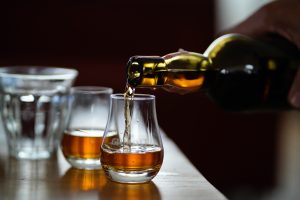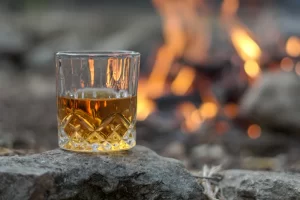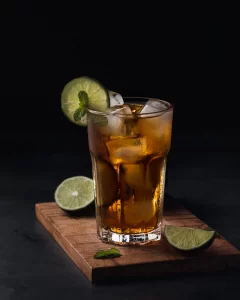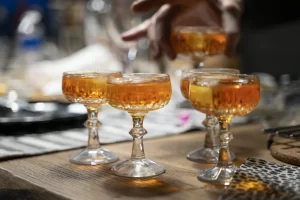Pennsylvania Alcohol Laws And Regulations
When it comes to states that have the most distilleries in operation, Pennsylvania isn’t too far behind Washington, Texas, New York, and California. With distillery industry growing quickly we decided to provide information on the Pennsylvania Alcohol Laws and Regulations for anyone wanting to start a distillery or consume alcohol.
In fact, Pennsylvania has around 50 distilleries, many of them situated around the cities of Philadelphia and Pittsburgh. What’s also interesting to know is that most of these distilleries produce rye whiskey!
Still, Pennsylvania has a range of distilleries that produce everything from vodka and gin to brandy and rum, and even tequila.
And if you’re curious to know about the distillery laws and regulations in Pennsylvania, this guide has the information you’re looking for.
Pennsylvania Distillery Fees
Distiller fees account for all the state fees distillers must pay before starting a distillery, as well as while operating a distillery.
The main Pennsylvania distillery fees include:
- Distiller license
- License to manufacture spirits
- License to own distilling equipment
- Sales fees (Pennsylvania alcohol excise tax rates)
These fees must be paid for the legal manufacture of alcohol in the state, as well as the sales made on the alcohol the distillery produces.
Pennsylvania Distiller Licensing Requirements
The first thing distilleries must obtain before starting a distillery in Pennsylvania (and in other states, for that matter) is a distiller license. This registers the distiller as a licensed manufacturer, which is required for the legal production of liquor.
The distiller license can be obtained from the Pennsylvania Liquor Control Board, which governs liquor production across the state. There is an application filing fee for the distillers license, as well as an annual fee that must be paid to maintain the license.
Pennsylvania Distillery Laws And Regulations
Like other states, distilleries in Pennsylvania must follow certain laws and regulations to legally manufacture, sell, and distribute alcohol.
These laws also cover the sale of onsite products, samples provided in tasting rooms, along with product advertising and product labeling.
The main laws and regulations for distilleries in Pennsylvania are listed below.
Distiller License
It’s important for distillers to obtain a state distillers license before starting a distillery and manufacturing any kind of alcohol. This is regulated by Pennsylvania Liquor Control Board, which is also where the license must be applied for and renewed.
Applying for the distiller license costs a one-off fee. There is also a fee for renewing and obtaining the license, which is paid annually to the Pennsylvania Liquor Control Board.
Without it, manufacturing and selling alcohol will be considered illegal and will result in a number of penalties.
Production Limits
A production limit of 1000,000 gallons of distilled liquor may be issued to certain distilleries in Pennsylvania.
Sales Regulations
Distilleries in Pennsylvania must legally sell their alcohol products in state-owned liquor stores. Selling alcohol on-site is also allowed as long as the distillery is licensed.
Licensed distilleries must also sell the bottled liquors, produced at the distillery, at no more than five board-approved locations different from the licensed premises.
Tasting Rooms
Pennsylvania distilleries with tasting rooms, where consumers sample the distillery’s products during visits or tours, may only issue samples of no more than 1.5 fluid ounces per person.
Advertising
Like other states, Pennsylvania distilleries cannot advertise in ways that suggest their products have health benefits. Product advertisements must also not be deceiving or misleading, or appeal to underage drinkers.
Labeling
All spirits produced in Pennsylvania must be labeled in accordance with state and federal regulations, including the Federal Alcohol Administration Act.
Starting A Distillery In Pennsylvania
If you plan on starting a distillery in Pennsylvania, it’s important to be aware of, and meet, the above laws and regulations. The next step is to create a business and funding plan, as well as consider the various costs involved.
These include:
- The location of the distillery
- The size of the distillery
- Distillery equipment
- The volume of alcohol produced for commercial purposes
- The type of spirit for manufacture
- Branding and marketing
- Distributing
Like all businesses, profits won’t be instant, and distilleries may not see profits for up to 10 years. This also makes the type of spirit important to consider, as some spirits require more work to produce, as well as an aging process.
Choosing A Spirit To Produce

Some spirits are more difficult to distill than others, and some spirits require aging before they can be sold commercially. In some cases, the type of spirit can also affect the laws and regulations that need to be met.
The main types of distilled spirits include:
- Vodka – vodka is considered easier to distill than other spirits due to the fact that it doesn’t need to be aged
- Gin – gin is also is considered cost-effective and one of the easier spirits to distill because it doesn’t require aging
- Whiskey – whiskey must be aged for at least 5 years before being sold commercially, and is generally considered harder to distill than vodka and gin
- Rum – rum is also considered harder to distill than vodka and gin, and has an aging process of around 5–7 years
- Brandy – brandy can be ready to sell after 2 years of aging but the process can also extend longer than 10 years
- Tequila – tequila is considered the most expensive spirit to distill, but can be sold after being aged between 2 months and 3 years
Distillery Equipment Costs
Before starting a distillery, another thing to consider is the equipment required and how much it will cost. These include:
- Still
- Fermentation tanks
- Barrels
- Testing equipment
- Storage tanks
- Bottling equipment
- Labeling equipment
You’ll also need to buy the raw materials needed for the spirit you want to make, along with health and safety equipment to ensure that the distillery meets health and safety standards.
Pennsylvania Distillers Guild
The Pennsylvania Distillers Guild was founded in 2014 and is the main organization for the advocacy of distilling spirits in the state.
Most distilleries are members of a state distillers guild or state distillers association, and joining is a great way to find out more about state laws and regulations, fees, and licensing requirements.
If you’re planning to start a distillery in Pennsylvania, becoming a member of the Pennsylvania Distillers Guild can help you to meet other distillers, learn about the distilleries across the state, and find out what is legally required to start a distillery.
Conclusion
Like other states, Pennsylvania has various laws and regulations for distilleries operating in the state, which include distiller licensing for the legal manufacture of alcohol, sales fees and taxes, and abiding to production limits and sales regulations.
If you plan on starting a distillery in Pennsylvania, it’s important to meet these requirements and follow the necessary state (and federal) laws both before and during the operation of the distillery.









